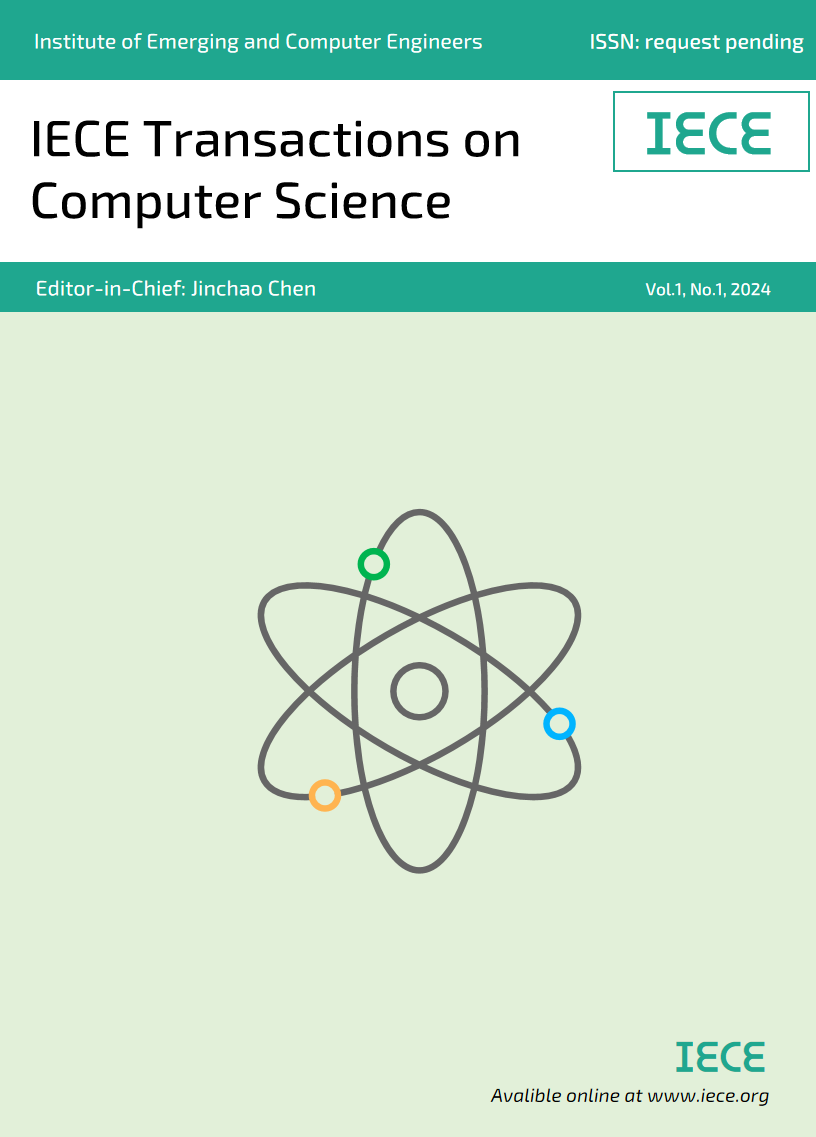IECE Transactions on Computer Science
ISSN: request pending (Online)
Email: [email protected]


 Submit Manuscript
Edit a Special Issue
Submit Manuscript
Edit a Special Issue
[1] George Gamow. , (1961). One Two Three... Infinity. New York: The Viking Press.
[2] Shi Chunrang. (2020). A Study of Translation of Science Population Text in China in the Past Century. Xi’an: Shaanxi Science and Technology Press.
[3] Ma, X., Wang, Y., Wang, Y., Cai, X., & Han, Y. (2022). Survey on chiplets: interface, interconnect and integration methodology. CCF Transactions on High Performance Computing, 4(1), 43-52.
[4] Zhao, X., Wang, Y., Liu, C., Shi, C., Tu, K., & Zhang, L. (2020, July). BitPruner: Network pruning for bit-serial accelerators. In 2020 57th ACM/IEEE Design Automation Conference (DAC) (pp. 1-6). IEEE.
[5] Li, W., Wang, Y., Li, H., & Li, X. (2019, January). P3M: a PIM-based neural network model protection scheme for deep learning accelerator. In Proceedings of the 24th Asia and South Pacific Design Automation Conference (pp. 633-638).
[6] Lian, S., Han, Y., Chen, X., Wang, Y., & Xiao, H. (2018, June). Dadu-p: A scalable accelerator for robot motion planning in a dynamic environment. In Proceedings of the 55th Annual Design Automation Conference (pp. 1-6).
[7] Wang, Y., Li, H., & Li, X. (2016, November). Re-architecting the on-chip memory sub-system of machine-learning accelerator for embedded devices. In 2016 IEEE/ACM International Conference on Computer-Aided Design (ICCAD) (pp. 1-6). IEEE.
[8] Hamdioui, S., Pouyan, P., Li, H., Wang, Y., Raychowdhur, A., & Yoon, I. (2017, November). Test and reliability of emerging non-volatile memories. In 2017 IEEE 26th Asian Test Symposium (ATS) (pp. 175-183). IEEE.
[9] Xu, D., Chu, C., Wang, Q., Liu, C., Wang, Y., Zhang, L., ... & Cheng, K. T. (2020, October). A hybrid computing architecture for fault-tolerant deep learning accelerators. In 2020 IEEE 38th International Conference on Computer Design (ICCD) (pp. 478-485). IEEE.
[10] Chen, W., Wang, Y., Yang, S., Liu, C., & Zhang, L. (2020, March). You only search once: A fast automation framework for single-stage dnn/accelerator co-design. In 2020 Design, Automation & Test in Europe Conference & Exhibition (DATE) (pp. 1283-1286). IEEE.
[11] Wang, C., Wang, Y., Han, Y., Song, L., Quan, Z., Li, J., & Li, X. (2017, January). CNN-based object detection solutions for embedded heterogeneous multicore SoCs. In 2017 22nd Asia and South Pacific design automation conference (ASP-DAC) (pp. 105-110). IEEE.
[12] Li, C., Wang, Y., Liu, C., Liang, S., Li, H., & Li, X. (2021). {GLIST}: Towards {in-storage} graph learning. In 2021 USENIX Annual Technical Conference (USENIX ATC 21) (pp. 225-238).
[13] George Gamow. (1978). One Two Three... Infinity. trans. by Bao Yongning, revised by Wu Boze. Beijing: Science Press.
[14] George Gamow. (2002). One Two Three... Infinity. trans. by Bao Yongning, Beijing: Science Press.
[15] Nida E A. (1969). The Theory and Practice of Translation. Leiden: Brill.
[16] Zhao Wei, Sun Yingchun. (2004) Personal dialect and translator style in literary translation. Foreign language teaching, 25(3), 64-68.
[17] Hermans, T. (2004). Translation in Systems: Descriptive and System-oriented Approaches Explained. Shanghai: SFLEP.
[18] George Gamow. (2019). One Two Three... Infinity. trans. by Liu Xiaojun and Yue Xia, Beijing: Cultural Development Press.
[19] Lefevere, A. (2004). Translation, Rewriting and the Manipulation of Literature Fame. Shanghai: Shanghai Foreign Language Education Press.
[20] George Gamow. (2019). One Two Three... Infinity. trans. by Zhang Butian, Beijing: The Commercial Press.
[21] Cheng Yafei, Li Chunhua. (2019). On copyright protection of works in the public domain in the publishing circle. Law and society, 22(3), 62-63.


Portico
All published articles are preserved here permanently:
https://www.portico.org/publishers/iece/